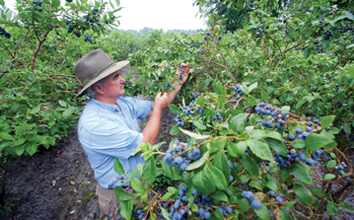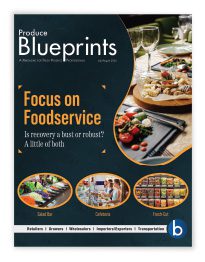Labor: Relatively Stable
Regarding labor, Sheppard admits skilled workers are hard to find. “We have a group of ladies who do piece work bunching asparagus. They trim it, weigh it, and band it. They make $1,200 a week.” He explains other laborers, with less experience or expertise in packing asparagus, are unable to match such volume and end up barely making minimum wage, “so, it truly is skilled labor.”
Ron Budd, vice president of Woodbury-based Gloucester County Packing Company, says his packing business requires workers year round, not seasonally. Even so, he explains, “We’re always trying to be as efficient as we can—since labor is so expensive.”
Both Budd and Sheppard cite significant investments to reduce payroll expenses: Budd added new automatic packaging machinery which can weigh, bag, and close five- and ten-pound bags. Sheppard bought sophisticated asparagus grading equipment. “It looks at the length, diameter, and at the head—to see if it is seeded or crooked,” he says. The new machine also weighs the asparagus in one-pound increments. “Before, this was all done by hand,” he reflects. “We had 80 people in the packing house and still couldn’t keep up.”
“We use a lot of high-tech equipment,” explains Tim Wetherbee, who works in sales for Diamond Blueberry and is on the New Jersey Blueberry Industry Advisory Council. “We have a computerized color sorter, a soft fruit sorter, a cleaning apparatus, and a picker,” he says. “We only use the picker for processing blueberries, or if we are short on labor.”
And while the state does not suffer from the same type of extreme shortages as other growing regions, labor is not always assured. Wetherbee says they start recruiting in early spring. “We hope for a full complement, but it’s always unknown until harvest time.”



